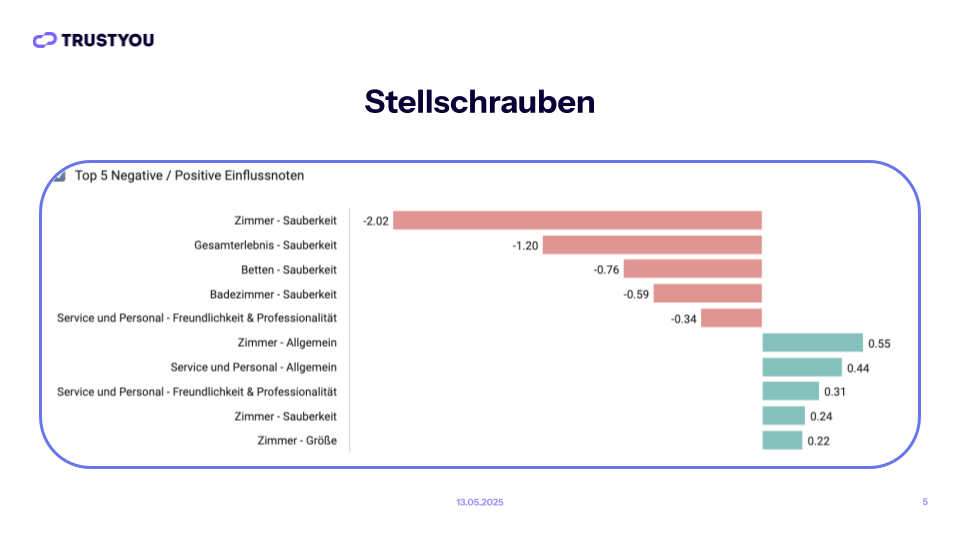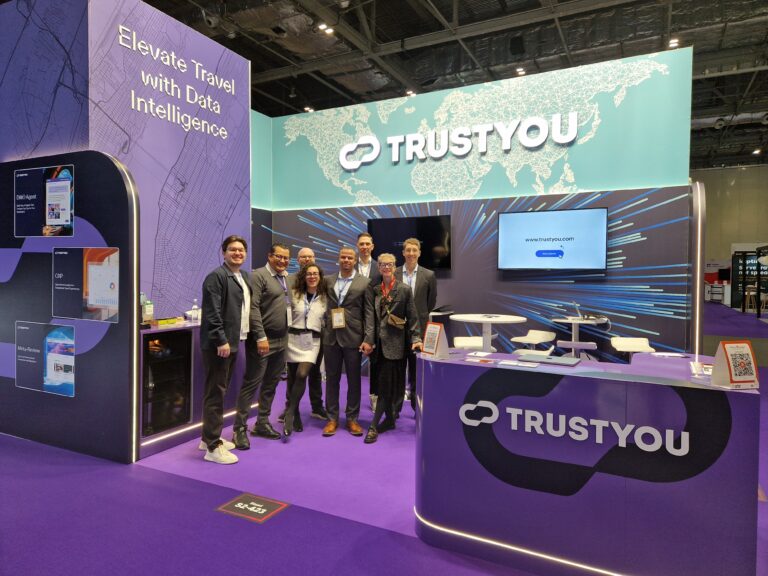Insights from the BZT Annual Conference 2025
On May 13, 2025, tourism professionals from across Bavaria came together in Garmisch-Partenkirchen for the BZT Jahrestagung (Annual Conference of the Bavarian Center for Tourism), a cornerstone event for advancing quality in tourism across the region. TrustYou was proud to be part of this important gathering—with our very own Georg Thanner, Senior Key Account Manager, delivering a keynote on a topic at the heart of what we do: “Understanding Customer Review Sites: What Insights Can They Provide?”
The keynote had a special resonance for Georg, who returned to his home region of Garmisch-Partenkirchen to share insights drawn from years of working with tourism organizations across Europe. As someone with deep local roots and global industry perspective, Georg brought a personal energy to the stage—and offered a deep dive into how review data is reshaping the way we define, measure, and manage quality in tourism.
How Do We Measure Quality?
Georg opened his keynote with a fundamental question: How do we actually define quality in tourism? He contrasted traditional classification systems—with their fixed criteria for star ratings and amenities—with traveler reviews, which reflect subjective, experience-based perceptions of quality.
“A 2-star hotel can be perceived as just as high quality as a 5-star one,” Georg noted, “depending on how well it meets the expectations of its guests.”
This paradox is especially relevant in today’s quality-focused tourism, where expectations vary widely by demographic, budget, and purpose of travel. While a luxury guest might be sensitive to small service lapses, a budget traveler may value authenticity and personal connection more highly.

The Role of Demographics and Personal Connection
At TrustYou, we know that traveler expectations are not universal—they’re shaped by demographics, culture, and past experiences. Georg emphasized that service quality, particularly the personal relationship between host and traveler, remains the most critical success factor across all segments.
“Cleanliness, food, price-performance—these all matter. But it’s the personal interaction that makes or breaks the experience, especially in quality-driven tourism.”
By analyzing review content through our platform, tourism businesses can understand not only what travelers say, but also what type of travelers are saying it—enabling tailored service adjustments and stronger guest retention.
Quality Insights: Combining Data and Context
To make sense of subjective reviews, TrustYou focuses on benchmarking within comparable categories—so hospitality providers aren’t comparing “apples to oranges.” Georg outlined the key elements for meaningful performance measurement:
- Regularity: to detect trends over time
- Comparability: across similar accommodation types or regions
- Quantitative KPIs + qualitative feedback: for a holistic view
He also addressed the differences between organic reviews and structured surveys. While reviews reflect spontaneous experiences (like service, cleanliness, or value), surveys can dig deeper into specific aspects, such as new offerings or one-time events—making them a valuable market research tool.

Practical Use Cases: From Analysis to Action
Georg illustrated how TrustYou clients—from classification bodies to DMOs—use feedback data strategically:
- HotellerieSuisse and regions like the Eifel and Allgäu use TrustYou insights to monitor portfolio performance and identify areas for improvement.
- Segmented analysis allows stakeholders to understand trends by property type, region, language, and even specific demographics.
- In Saxony and Saxony-Anhalt, TrustYou data helped identify guest favorites for the “Gästeliebling” awards, directly influencing local tourism promotion.
- One client even linked response rates to manager bonus schemes, reinforcing the value of active review engagement.
These examples show how real-world business decisions—from operational changes to incentive programs—can be guided by strategic analysis of traveler feedback.
Conclusion: Segment, Understand, Improve
Georg closed his keynote with a reminder that understanding traveler reviews is fundamentally about segmentation:
- Who is the reviewer?
- What are their expectations?
- What type of business are they reviewing?
- And in which category or context?
Only by interpreting reviews through this lens can businesses move beyond surface-level sentiment and drive long-term improvements in quality.
At TrustYou, we’re proud to support thousands of partners in this mission—to listen better, respond smarter, and deliver truly traveler-centric experiences.


